#and for nge but its a decade old anime
Text
I'd like to imagine Sage is basically just Rei from NGE and not only did Eggman just create her just so he could have The Perfect Kid but every time she dies he just makes another one of her
#sonic frontiers spoilers#and for nge but its a decade old anime#somehow i managed to avoid most spoilers of it tho
3 notes
·
View notes
Text
anyways, now that im halfway through my nge rewatch like half a decade later after it lowkey kinda traumatized me at 14 years old, uhhhh??? ive kinda realized why i like evangelion, and its because i dont enjoy it the same way evangelion fans LOVE evangelion.
like, don't get me wrong, i absolutely love the subversions of alot of tropes, and angel's cruel thesis is a banger, and i love the designs of the evas & angels & the first battle (literally the show peaked at the first battle at the end of episode 2), & theres undeniably gay people that have fucked before, but also. while i appreciate how the anime can get deep, there are times where i think it's. too deep into shinji's mind, it can get like. WAAAAAAAY too introspective to the point it kinda becomes a lil annoying, a lil tiring.
and i think one thing i don't like the Most would have to be like, the hypersexualization of our underaged main gals. like, especially so with auska & rei. im not a huge fan of that. i can assume if, the audience age that it was made for (like. 11-14 year olds) Might've gotten a kick out of it, but as a full ass 21 year old adult, i just feel extremely uncomfortable by it and i gotta keep looking away everytime the animators like. animate in a weird pervy shot of the 15 year old, ya know???? its pretty uncomfortable, and its the one thing holding me back from truly calling this show a masterpiece
was it important to me??? yes. and did it have gay people??? oh absolutely. but im a fan of it for the wrong reasons, and this show is absolutely not perfect. idk how far id go to recommending it
#ruby says clown shit#id say its a required taste like#there are definitely some subversions that ive enjoyed but besides that#im sure youve heard everything ya need to know about evangelion#its an important show to me that ive enjoyed various aspects about but i wouldnt call the whole show perfect or even one of my faves#it is a show that exists#nge rewatch#anyways im officially halfway through the series again and uh. idk if i wanna watch the rebuild series next after the show & end of eva#maybe i'll take an eva break after the og show & end of eva & watch something else on my mecha anime watchlist#to everybody that sent me reccs last weekend tysm my list has grown a lil bit bigger now & ive got some shows to watch now#and yea ive thrown in a bit of gundam on there too. but like. the iconic ones i havent watched yet#stuff like iron blooded orphans. wing & g gundam. also added gundam x bc everybodys been calling it the black sheep of the franchise#which im very interested to see what thats about
6 notes
·
View notes
Note
neon genesis evangelion
Okay I watched nge like a decade ago (I am so old) and retained nearly nothing, but I am literally always thinking about the (relatively lol) whimsical synchronized dancing episode.
I think it's also really interesting that a series that's so dated still has such a prevalent place in anime culture today. I feel like most anime enjoyers have at least some secondhand knowledge of the series despite its age, and that's cool (:
1 note
·
View note
Text
IN-DEPTH: Neon Godzilla Evangelion, The Horrors of Hideaki Anno

"Something broken or deficient comes more naturally to me. Sometimes that thing is the mind. Sometimes it is the body."
-Hideaki Anno, creator of Neon Genesis Evangelion
"Monsters are tragic beings; they are born too tall, too strong, too heavy, they are not evil by choice. That is their tragedy."
- Ishiro Honda, director of Godzilla
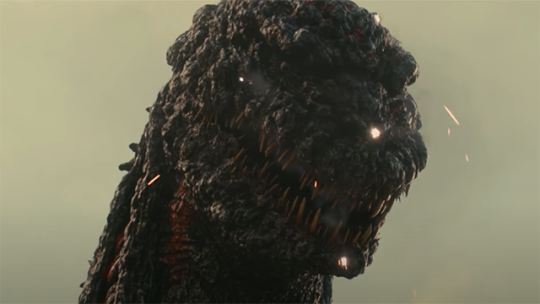
Image via Amazon Prime Video
Horror is born of trauma. The pop-culture monsters we fear and are fascinated by tend to reflect our very real anxieties. Frankenstein tells the story of scientific progress so explosive that it risks leaving humanity behind. It Follows creates a nightmare vision of looming intimacy and the potential for unknowable disease. Leatherface, hooting at the dinner table with his brothers in rural Texas, was the child of economic angst, the crimes of Ed Gein, and of President Nixon's threat of a "silent majority" forcing Americans to reconsider whether or not they really knew their neighbors.
And Godzilla? Well, Godzilla is a metaphor for a bomb. A bunch of bombs, actually. But more important than that, he represents loss — the loss of structure, of prosperity, of control. Godzilla is our own hubris returning to haunt us, the idea that in the end, we are helpless in the face of nature, disaster, and even our own mistakes. We, as a species, woke him up and now we have to deal with him, no matter how unprepared we are.
Hideaki Anno understands this.
In 1993, he began work on Neon Genesis Evangelion, a mecha series profound in not just its depiction of a science fiction world but in its treatment of depression and mental illness. It is a seminal work in the medium of anime, a "must-watch," and it would turn Anno into a legend, though his relationship to his magnum opus remains continuous and, at best, complicated. It is endlessly fascinating, often because Anno seems endlessly fascinated by it.
In 2017, he would win the Japanese Academy Film Prize for Director of the Year for Shin Godzilla, a film that also won Picture of the Year, scored five other awards, and landed 11 nominations in total. Shin Godzilla was the highest-grossing live-action Japanese film of 2016, scoring 8.25 billion yen and beating out big-name imports like Disney's Zootopia. In comparison, the previous Godzilla film, Final Wars, earned 1.26 billion. Shin Godzilla captured the public's attention in a way that most modern films in the franchise had not, returning the King of the Monsters to his terrifying (and culturally relevant roots).
So how did he do it? How did Anno, a titan of the anime industry famous for his extremely singular creations, take a monster that had practically become a ubiquitous mascot of Japanese pop culture and successfully reboot him for the masses? How did Godzilla and Neon Genesis Evangelion align in a way that now there are video games, attractions, and promotions that feature the two franchises cohabitating? The answer is a little more complex than, "Well, they're both pretty big, I guess."
To figure that out, we have to go back to two dates: 1954 and 1993. Though nearly 40 years apart, both find Japan on the tail end of disaster.
Part 1: 1954 and 1993
On August 6th and August 9th 1945, two atomic bombs were dropped on the cities of Hiroshima and Nagasaki, respectively. These would kill hundreds of thousands of people, serving as tragic codas to the massive air raids already inflicted on the island nation. Six days after the bombing of Nagasaki, Japan would surrender to the Allied forces and World War II would officially end. But the fear would not.
Within a year, the South Pacific would become home to many United States-conducted nuclear tests, just a few thousand miles from Japan. And though centered around the Marshall Islands, the chance of an accident was fairly high. And on March 1, 1954, one such accident happened, with the Lucky Dragon #5 fishing boat getting caught in the fallout from a hydrogen bomb test. The crew would suffer from radiation-related illnesses, and radioman Kuboyama Aikichi would die due to an infection during treatment. For many around the world, it was a small vessel in the wrong place at the wrong time. For Japan, it was a reminder that even a decade after their decimation from countless bombs, atomic terror still loomed far too close to home.
Godzilla emerged from this climate. Films about giant monsters had become popular, with The Beast from 20,000 Fathoms and a 1952 re-release of King Kong smashing their way through the box office, and producer Tomoyuki Tanaka wanted to combine aspects of these with something that would comment on anti-nuclear themes. Handed to former soldier and Toho Studios company man Ishiro Honda for direction and tokusatsu wizard Eiji Tsubaraya for special effects, Godzilla took form and would be released a mere eight months after the Lucky Dragon incident.

Image via Amazon Prime Video
It was a success, coming in eighth in the box office for the year and it would lead to dozens of sequels that would see Godzilla go from atomic nightmare to lizard superhero (and then back and forth a few times). America, sensing profits, bought the rights, edited it heavily, inserted Rear Window star Raymond Burr as an American audience surrogate, and released it as Godzilla: King of the Monsters! It was also very profitable, and for the next 20 years, every Japanese Godzilla film got a dubbed American version following soon in its wake.
Years went by. Japan would recover from World War II and the following Allied Occupation and become an economic powerhouse. But in the late '80s, troubling signs began to emerge. An asset price bubble, based on the current economy's success and optimism about the future, was growing. And despite the Bank of Japan's desperate attempts to buy themselves some time, the bubble burst and the stock market plummeted. In 1991, a lengthy, devastating recession now known as the "Lost Decade" started. And the resulting ennui was not just economic but cultural.
The suicide rate rose sharply. Young people, formerly on the cusp of what seemed to be promising careers as "salarymen," found themselves listless and without direction. Disillusionment set in, both with the government and society itself, something still found in Japan today. And though people refusing to engage with the norms of modern culture and instead retreating from it is nothing new in any nation, the demographic that we now know as "Hikikomori" appeared. And among these youths desperate to find something better amid the rubble of a once-booming economy was animator Hideaki Anno.
A co-founder of the anime production company Gainax, Anno was no stranger to depression, having grappled with it his entire life. Dealing with his own mental illness and haunted by the failure of important past projects, Anno made a deal that would allow for increased creative control, and in 1993, began work on Neon Genesis Evangelion. Combining aspects of the popular mech genre with a plot and themes that explored the psyche of a world and characters on the brink of ruin, NGE would become extremely popular, despite a less than smooth production.
The series would concern Shinji Ikari, a fourteen-year-old boy who suffers from depression and anxiety in a broken and terrifying world. Forced to pilot an EVA unit by his mysterious and domineering father, Shinji's story and his relationships with others are equal parts tragic and desperate, and the series provides little solace for its players. Anno would become more interested in psychology as the production of the series went on, and the last handful of episodes reflect this heavily.

Image via Netflix
After the original ending inspired derision and rage from fans, Anno and Gainax would follow it up with two sequel projects (Death & Rebirth and The End of Evangelion), and NGE's place in the pantheon of "classic" anime was set. Paste Magazine recently named it the third-best anime series of all time. IGN has it placed at #8 and the British Film Insititute included End of Evangelion on their list of 50 key anime films. The exciting, thoughtful, and heart-breaking story of Shinji Ikari, Asuka, Minato, and the rest has gone down in history as one of the best stories ever told.
So what would combine the two and bring Godzilla's massive presence under the influence of Anno's masterful hand? As is a miserable trend here, that particular film would also be spawned from catastrophe.
Part 2: 2011
"There was no storm to sail out of: The earth was spasming beneath our feet, and we were pretty much vulnerable as long as we were touching it," said Carin Nakanishi in an interview with The Guardian. The spasm she was referring to? The 2011 Tohoku earthquake, the most powerful earthquake in the history of Japan. Its after-effects would include a tsunami and the meltdown of three reactors at the Fukushima Daiichi Nuclear Power Plant. The death toll was in the tens of thousands. The property destruction seemed limitless. The environmental impact was shocking. Naoto Kan, the Japanese Prime Minister at the time, called it the worst crisis for Japan since World War II.
It took years to figure out the full extent of the damage. Four years after, in 2015, 229,000 people still remained displaced from their ruined homes. The radiation in the water was so severe that fisheries were forced to avoid it. The cultivation of local agriculture was driven to a halt, with farmland being abandoned for most of the decade. And though the direct effects of it varied depending on how far away you lived, one symptom remained consistent: The inability to trust those who'd been sworn in to help.
"No useful information was being offered by the government or the media," Nakanishi said. Many voiced a fear that the government had not done its decontamination job properly or would not continue to help them if they returned to their former homes near Fukushima. Some felt the people making decisions were far too distant to truly understand what was going on. Many thought that the government had underestimated the danger. In a survey taken after the Fukushima meltdown, "only 16 percent of respondents ... expressed trust in government institutions." In most of these stories, citizens stepped in to help, feeling as if they had no other choice. Eventually, his approval ratings dropped to only 10 percent and Naoto Kan stepped down from his role as Prime Minister.
And what of Godzilla and Anno at the time? Well, the former lay dormant, having been given a 10-year hiatus from the big screen by Toho after the release of 2004's Godzilla: Final Wars. And though he'd show up in a short sequence in Toho's 2007 film Always Zoku Sanchome no Yuhi, they kept good on their promise. But Godzilla fans did not have to worry about a drought of Godzilla news. American film production company Legendary Pictures was busy formulating their own take on him, having acquired the rights a year before.
Meanwhile, Anno's post Evangelion life consisted of ... a lot more Evangelion. Though he'd direct some live-action films, his most newsworthy project was a series of Rebuild of Evangelion titles, anime films built with different aims (and created with a different mindset) than the original series. Departing Gainax in 2007, these would be created under his newly founded studio, Studio Khara.

Image via Netflix
And while it's obvious from the contents of Evangelion that Anno is interested in giant monsters and giant beings in general (Evangelion is pretty chockful of them), this fascination would only become more open. In 2013, he'd curate a tokusatsu exhibit at the Museum of Contemporary Art in Tokyo, one that showcased miniatures from Mothra to Ultraman to Godzilla himself. About the exhibit, Anno would write:
"As children we grew up watching tokusatsu and anime programs. We were immediately riveted to the sci-fi images and worlds they portrayed. They put us in awe, and made us feel such suspense and excitement. (...) I think our hearts were deeply moved by the grown-ups' earnest efforts working at the sets that dwelled deep behind the images. (...) The emotions and sensations from those cherished moments have lead us to become who we are today."
For the presentation, he'd also produce a short film called A Giant Warrior Descends on Tokyo, with the monster based on a creature from Hayao Miyazaki's — his old boss and an inspiration to Anno, along with the man that Anno would accompany on a trip to the Iwata prefecture to show support for communities wrecked by the Tohoku earthquake — Nausicaa of the Valley of the Wind manga. It was directed by Shinji Higuchi, an old collaborator of Anno's at Gainax who had served as Special Effects Director for Shusuke Kaneko's stellar Gamera trilogy in the '90s.
And though Higuchi would shortly go on to direct two Attack on Titan live-action films, their partnership would continue. Because in 2015, Toho announced they would team up to co-direct Godzilla 2016.
Part 3: 2016
Hideaki Anno has often thought of the apocalypse.
In an interview with Yahoo! News in 2014, he'd tell the interviewer he "sincerely thought that the world would end in the 20th Century," and that his fear of a nuclear arms race and the Cold War had heavily influenced Evangelion. However, his creative process isn't just permeated by man-made threats. "Japan is a country where a lot of typhoons and earthquakes strike ... It's a country where merciless destruction happens naturally. It gives you a strong sense that God exists out there."
This focus on earthly intervention by a divine presence is definitely a theme in Evangelion, but it also applies to Godzilla, a borderline invincible behemoth that was created to remind man of its mistakes. It's this kind of provoking thoughtfulness (among other things) that might have alerted Toho Studios of Higuchi and Anno's potential proficiency in re-igniting the slumbering Godzilla franchise. "[W]e looked into Japanese creators who were the most knowledgeable and had the most passion for Godzilla ...Their drive to take on such new challenges was exactly what we all had been inspired by," Toho would say of the pair.
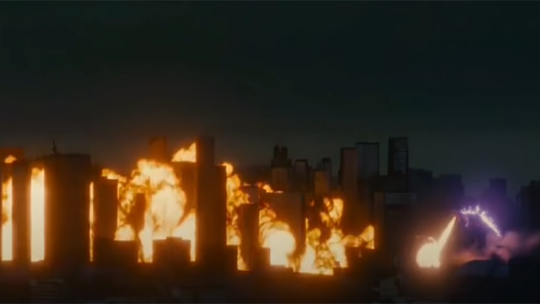
Image via Amazon Prime Video
It was a few years in the making, though. After the creation of Evangelion: 3.0 You Can (Not) Redo, Anno fell into depression, causing him to turn down Toho's 2013 offer of the Godzilla project. But thanks to the support of Toho and Higuchi, Anno decided to eventually take them up on it. However, he did not want to repeat how he felt past filmmakers had been "careless" with Godzilla, stating that Godzilla "exists in a world of science fiction, not only of dreams and hopes, but he's a caricature of reality, a satire, a mirror image." Higuchi was also passionate about the project, saying, "I give unending thanks to Fate for this opportunity; so next year, I'll give you the greatest, worst nightmare."
Rounding out the NGE reunion with Shin Godzilla would be Mahiro Maeda, a character designer who would provide the look of Godzilla, and Evangelion composer Shiro Sagisu. Sagisu's music often includes motifs from Evangelion and the work of Akira Ifukube — who scored many classic Godzilla films — and is a great match for the monster. It's powerful stuff.
youtube
Anno's main concern was rivaling the first Godzilla, a film that remains effective to this day. So, in order to "come close even a little," he "would have to do the same thing." Thus, after over 60 years of monster adventures, Shin Godzilla became Godzilla's first real Japanese reboot, following a long line of films that were either direct sequels or had ignored the sequels to become direct sequels to the original. It would carry many of the same beats — monster arrives, people struggle to figure out how to stop it, they eventually do. The end. But unlike many Godzilla films, in which bureaucratic operations took a backseat to the scientists that would eventually figure out how to stop (or help) the Big G, they were front and center here.
And the depiction was often less than kind.
Instead of confident and sacrificial, the politicians found in Shin Godzilla are ludicrous in their archaic behavior, seemingly more concerned with what boardroom they're in than the unstoppable progress of the beast destroying their city. Most of their actions are played for comic relief, a tonal clash with the stark backdrop of the 400-foot-tall disaster walking just outside their offices. Multiple references are made to the Tohoku earthquake, the tsunami, and the Fukushima meltdown — including the waves that follow Godzilla as he comes ashore and the worry over the radiation Godzilla leaks into the land he travels across. One plot point even includes Japan grappling with the potential use of an atomic bomb on Godzilla from the United States, showing that over seventy years after the end of WWII, nuclear annihilation remains a terrifying prospect.
In the end, only a team organized by a young upstart that's mostly free from the processes of his slower, befuddled elders can save the day. That said, "save" isn't really the right word. Echoing Anno's statement that Japan is "a country where merciless destruction happens naturally," Godzilla is only frozen in place, standing still in the middle of the city, a monstrous question left to be solved. Whether it's Godzilla or a disaster like Godzilla, it is a problem that you must deal with, prepare for, and rebuild after. It will always be there.
That said, the film isn't just a parody of quivering government employees out of their depth in the face of a cataclysm (distrust in the goodwill of authority figures is a theme also omnipresent in Evangelion). It's also a really, really rad monster movie. Godzilla is a scarred, seemingly wounded creature, his skin ruptured and his limbs distorted. He is not action-figure ready, even as he evolves into forms more befitting of total annihilation. As the Japanese military increasingly throws weaponry at him, he transforms to defend himself, emitting purple atomic beams from his mouth, his back, and finally his tail. Higuchi and Anno's direction is often awe-inspiring, whether the camera is tilted up to capture Godzilla from a street-level view, or panning around a building to face him head-on. Godzilla feels huge.
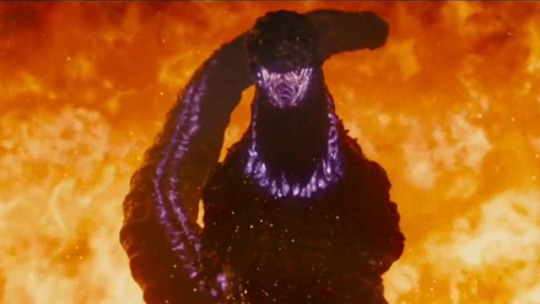
Image via Amazon Prime Video
Its this combination of ideas and execution that would cause Shin Godzilla to sweep the Japanese Academy Awards in 2017, and, excuse my pun, absolutely crush it at the box office. But an incredible movie wouldn't be the end of it. In fact, while Shin Godzilla was a successful Anno creation, it hadn't yet gone to battle with Anno's other most successful creation.
Not yet anyway.
Part 4: 2018
A few months before Shin Godzilla's release, Toho announced a "maximum collaboration" between Godzilla and Neon Genesis Evangelion, a team-up that first manifested itself in art and crossover merchandise. Art with the logo for NERV (the anti-Angel organization from Evangelion), with the fig leaf replaced by Godzilla's trademark spines showed up on a subsite for the Shin Godzilla film.
Meanwhile, video game developers Granzella and publisher Bandai Namco worked on City Shrouded In Shadow, a game where you played as a human trying to survive attacks from various giant beings, including some from the Godzilla universe and some from Evangelion. And though this wasn't specifically tied to Shin Godzilla — Godzilla looks much more like his design in the '90s series of movies, a monster style that was the go-to branding look for years after — it did make the idea of the two franchises co-existing in similar spaces a little less alien.
The big one came in 2018 when Universal Studios Japan declared that the following summer, it would be home to a meeting of the two titans in "Godzilla vs Evangelion: The Real 4-D." This ride/theater experience would give audiences a firsthand look at a clash between the EVA units and Godzilla. However, just as the horror of the original Godzilla had been diluted through various sequels that saw him becoming Japan's protective older brother, and just as the crushing melancholy of Evangelion feels a little less sad when you see Rei posing on the side of a pachinko machine, this ride would also be a reframing experience.
Godzilla is a threat, at first, as the Evangelion units zip around, blast him, and try to drop-kick him. But then, out of space, Godzilla's old three-headed foe King Ghidorah emerges. The golden space dragon provides a common enemy for the group and they work together to eliminate it. Godzilla, seemingly forgetting why he showed up to the ride in the first place, trudges back into the sea. He is now a hero, his spot as Earth's Public Enemy #1 seemingly neutered.
To this day, news of theme park attractions that bear the Shin Godzilla design consistently pop up, including one ride where you can zip line into Godzilla's steaming open mouth! But Toho doesn't seem open to a live-action sequel that many see as the obvious next step (though they would produce a trilogy of anime films that take place in a different monster timeline). Instead, they opted for beginning a kind of Godzilla shared universe, like the extremely popular Marvel Cinematic Universe. And Anno and Higuchi have moved on to their next revitalizing effort: a reboot of Ultraman.
Wes Craven, the director of A Nightmare on Elm Street once said, "You don't enter the theater and pay your money to be afraid. You enter the theater and pay your money to have the fears that are already in you when you go into a theater dealt with and put into a narrative ... Stories and narratives are one of the most powerful things in humanity. They're devices for dealing with the chaotic danger of existence." The creators at Toho certainly gave people that with Godzilla, just as Anno did with Neon Genesis Evangelion.

Image via Amazon Prime Video
But horror films are also entertainment, and soon these monsters are sequel-ized and commodified, losing their edge to the point that new minds are brought in to reboot them and help them move forward. It's a process we've repeated since people began telling stories to one another thousands and thousands of years ago. They help us confront the worst aspects of ourselves and of our worlds. It's what makes them vital. We need them. Like the next evolution of monsters sprouting from Godzilla's tail in the final frame of Shin Godzilla, the horror genre reaches out, grasping for fears that we have and fears that will one day come.
For more Crunchyroll Deep Dives, check out Licensing of the Monsters: How Pokemon Ignited An Anime Arms Race and The Life And Death Of Dragonball Evolution.
Daniel Dockery is a Senior Staff Writer for Crunchyroll. Follow him on Twitter!
Do you love writing? Do you love anime? If you have an idea for a features story, pitch it to Crunchyroll Features.
6 notes
·
View notes
Text
THE POSITIVE & NEGATIVE ; mun & muse - meme .

fill out & repost ♥ This meme definitely favors canons more, but I hope OC’s still can make it somehow work with their own lore, and lil’ fandom of friends & mutuals. Multi-Muses pick the muse you are the most invested in atm.
my muse is: canon / oc / au / canon-divergent / fandomless
Is your character popular in the fandom? YES / NO.
Is your character considered hot™ in the fandom? YES / NO / IDK.
Is your character considered strong in the fandom? YES / NO / IDK.
Are they underrated? YES / NO.
Were they relevant for the main story? YES / NO.
Were they relevant for the main character? YES / NO / THEY’RE THE PROTAG.
Are they widely known in their world? YES / NO.
How’s their reputation? GOOD / BAD / NEUTRAL.
how strictly do you follow canon? i try to follow canon as much as possible for shinji in nge. for rebuild, mostly, only bc nge is my main version of shinji. it’s been a while since i read the manga, and there’s definitely stuff to like about it, but imo sadamoto’s writing there isn’t as good as anno’s is in nge ( and rebuild... to an extent ), so i’d probably end up changing some details for manga!shinji with whatever headcanons if i wrote him more often / went into depth about things? but it’s still interesting to see how different shinji and kaworu ( + other characters ) are in the manga, and new dynamics can be fun!!
SELL YOUR MUSE! aka try to list everything, which makes your muse interesting in your opinion to make them spicy for your mutuals. lemme try and sell you nge first unless you’ve already sold your soul to it LOL join me.... tldr it’s a classic anime and still relevant today despite it being like 24 years old ( with tons of merch now most i would shamelessly buy ). there’s so many characters that feel real and human in nge. hideaki anno poured too much of his heart and soul into it, the reflections of himself and his personal feelings feel very raw. i could also try to sell you like every nge character bc they’re all so well written but mha;lskdjf on to the last point. being the main character for eva, shinji is iconic too... he’s among the best leads i’ve seen in anime. most critics will agree and have agreed with this for decades ( if you only ask me, he’s number one for everything bc i’m biased af ❤ ). i talk too much about how he’s bby / cute and does his best, but probably not enough about how flawed he is as a person too, his deeper wants and needs, and when those things go horribly wrong. the duality is really what makes shinji complex and human. also bonus points!! he’s frequently scored at the top for fav anime characters in japan since ‘95 in newtype and stuff n_n
now the OPPOSITE, list everything why your muse could not be so interesting ( even if you may not agree, what does the fandom perhaps think? ). next to louder and more colourful characters like asuka, for example, shinji can come off as quiet and boring ( especially compared to traditional hot blooded mecha protagonists in general ). shinji isn’t a genius or leader. he’s super passive, introverted, shy, and bad at fun conversations. he saves the world and tries to do the right thing, so by definition, he’s a hero--- but he’s also just a boy who’s gone through a lot. he has a lot of depth and hidden anger / feelings in general, but it would take a lot for him ( i.e. pressure, circumstances ) to express that outwardly--- daily shinji isn’t really like that. fandom wise, i think shinji recently came in 4th in the NHK eva popularity contest, so that’s pretty good, people do like him there. kawoshin is also as popular as ever ( and i’ve also seen more shinji fans in the western side too ). meanwhile old nge fandom be like ‘shinji u loser get in the fucking robot!!!111 ur surrounded by hot chicks every single day and still cry wow’ but that’s more like an ironic meme nowadays LOL
what inspired you to rp your muse? i finally watched eva properly like two years ago?? ( too late 4 kawoshin 2015 fandom q-q ) it was good so i sold my soul to it and shinji mhasdflkj
what keeps your inspiration going? eva being my fav anime and shinji my fav character, seeing fanworks of eva, and ofc everyone who interacts with me here on my blog q-q bless u and thank u
some more personal questions for the mun .
give your mutuals some insight about the way you are in some matters, which could lead them to get more comfortable with you or perhaps not.
do you think you give your character justice? YES / NO.
do you frequently write headcanons? YES / NO ( sometimes )
do you sometimes write drabbles? YES / NO.
do you think a lot about your muse during the day? YES / NO.
are you confident in your portrayal? YES / NO.
are you confident in your writing? YES / NO ( sort of?? )
are you a sensitive person? YES / NO.
do you accept criticism well about your portrayal? yes to respectful and constructive criticism!! but i’m still pretty circumstantial about it for my comfort ( just to avoid random ppl being rude etc ), so i think i’d prefer to reblog a meme for that and / or ask for opinions and tips from my mutuals!
do you like questions, which help you explore your character? yesss, i think most of us would love that n_n both unprompted and reblogged memes work for me
if someone disagrees to a headcanon of yours, do you want to know why? i’m a private blog, so if it’s more of a plot based headcanon that a mutual wanted to discuss for fun and in a friendly way, then ok! i think there’d be room for constructive discussion there ( ah yes eva and its 24 years of pepe silvia meme.png complex lore discussion still going strong )
if someone disagrees with your portrayal, how would you take it? similar to the above and the constructive criticism thing, i’ll only care / be open to discussing that kinda stuff if we’re mutuals and if you’ve seen eva, etc.
if someone really hates your character, how do you take it? as seriously as a funny meme when it comes to randos LOL buuuut long answer too: i’ve also seen passionately mean spirited, usually terrible and equally as unironic takes about shinji on the internet bc that’s the internet sometimes rip. this version of hate is more annoying and can suck just to look at, especially if it gets lots of attention in the form of agreement ( it usually makes me think, did we even watch the same show ). but also arguing endlessly with whoever wrote it / believes it would suck even more ( being a waste of time for one ). i guess that’s one reason why i care more about the personal safe space i’m trying to create on my dashboard etc. and people have very different opinions about anything in general. but basically, in general, this: if someone hates x or y fictional character with such a burning passion, and they won’t be satisfied unless they try to convince others to hate them too, or say that fans of x or y character are bad people irl and belittle said fans for it on their own time ( or openly harass those fans ), and if they’re crusading this idea, constantly?? block, blacklist, report for harassment if noted, filter it out--- it’s definitely better to stay away from that kind of negativity ( also bc it’s absurd and necessary ). i question anyone who finds joy / importance in trying to police the content and comfort of others, but i also know that they wouldn’t have fun hanging out with me LOL kaworu vc surround yourself with people who love shinji ikari
are you okay with people pointing out your grammatical errors? sure, once in a while is fine, especially if i made a typo or something that makes the context or anything confusing / unclear!
do you think you are easy going as a mun? i try to be!! despite that longer rant just now mhas;ldkfj thanks for reading this far if you still are LOL
That’s about it, congrats for filling out!
tagged by: @skyvar aka the creator n_n thank you omg?? this was awesome!!
tagging: if you wanna!
7 notes
·
View notes
Text
I Need You: Why Evangelion Still Matters

If you’re even a casual fan of Japanese animation (colloquially known as anime) you’ve probably heard of a few classics held up as the best of the medium; films and television shows whose place in the history of Japanese culture is widely regarded as secure: Akira, Cowboy Bebop, Ghost in the Shell, Spirited Away, to name a few of the most prominent. They all have their critics, but few would dispute their place as landmarks of the industry. But there’s one classic piece of Japanese animation however whose legacy is far more contentious and which sparks controversy even today. Like the aforementioned pieces it’s well-known and has been watched by many, but unlike them it remains quite controversial, beloved by some and derided by others.
I’m talking about Neon Genesis Evangelion,¹ Hideaki Anno’s 1995 post-apocalyptic series about teenagers who pilot giant robots (known as mecha) in a war for the survival of humanity. And in my opinion it’s actually one of the best and most important television shows of all time, animated or not.
(Spoilers ahead, though I’ll try to keep major revelations to a minimum.)
I realize that in making my claim, I’m setting myself up for criticism. The value (or lack thereof) of Neon Genesis Evangelion has been one of the most heated debates in anime fandom for decades. But even on the purely objective level of its influence on the animation industry, both in Japan and beyond, NGE and its subsequent spin-offs, sequels, and re-imaginings is a significant work worth consideration. Although the show is decades old now (the first episode aired October 4, 1995), I believe it’s still worth examining why the show’s so acclaimed and why, in my opinion, it’s still relevant today, in no smal part because of the lessons it still has to teach us about self-acceptance.
(An earlier version of this essay was posted 4 years ago here.)
Weaving a Story
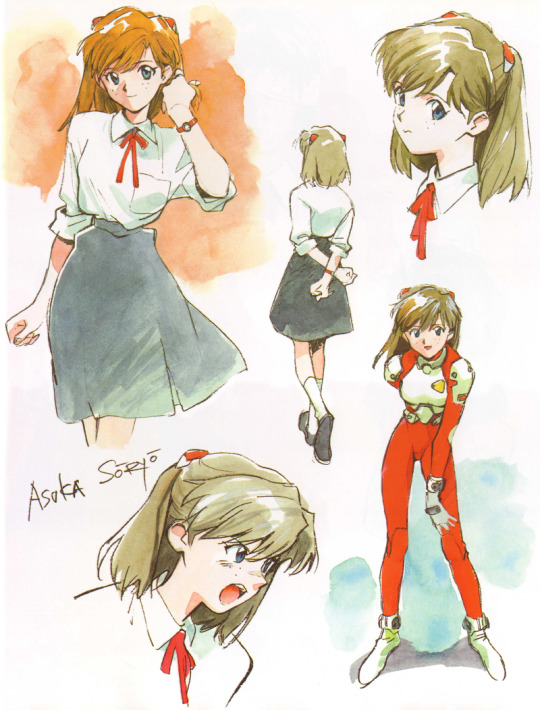
Concept art for Asuka Langley Soryu, the Second Child
Today, Evangelion is a major franchise, incorporating films, comics, video games, and more. But it all started with one TV show, Neon Genesis Evangelion, created by Hideaki Anno for Gainax. Even from the start, NGE was somewhat exceptional. In the early-to-mid 1990s when it was produced, most of the major animated shows on air (both in Japan and America) were heavily merchandise-driven and sponsored by either toy or video game companies. Nearly all were owned by a major studio like Toei or Toho. Conceived of by a single individual and owned by a small creator-run studio, Neon Genesis Evangelion was highly unusual and something of a creative risk.
The story of Neon Genesis Evangelion is, on first glance, nothing remarkable for Japanese animation. A group of teenagers are recruited by a unified global government to pilot giant robots (mecha) in a battle for the survival of humanity. In the process they have to face not only their deadly adversaries but also learn how to work together as a team, overcoming their many differences and personal issues. Gundam, Macross, and Hideaki Anno’s own Gunbuster had all covered similar territory before. But where NGE would go with its premise was far stranger, blending the well-tread concept of adolescent soldiers with theological imagery, Freudian and Lacanian analysis, and abstract writing that soon set the show apart from its contemporaries.
The show quickly caught the fascination of viewers. While Neon Genesis Evangelion started initially with solid but unexceptional ratings, it soon expanded into a massive pop cultural phenomenon as more and more people tuned in to find out what all the fuss was about, eventually reaching 25-30% of the targeted demographic.² The final two episodes, noted for their abstract nature and for seemingly leaving several plot threads hanging, prompted a highly polarized reaction. The follow-up movie The End of Evangelion, released a year later, divided audiences even further. As a consequence, despite Evangelion’s immense popularity and influence, the franchise remains one of the most controversial works to ever air on broadcast television.
Neon Genesis Evangelion’s ending was, however, just one of its controversial aspects. Moral guardians raised complaints about the show’s frank (and frequently bleak) depictions of sex, violence, and mental illness, demanding networks censor its content. Critics such as Eiji Otsuka and Tetsuya Miyazaki accused Anno of “brainwashing” his audience and affirming, rather than criticizing, anime fans’ escapist tendencies. Yoshiyuki Tomino, the director of both Gundam and Ideon, complained that Anno tried “to convince the audience to admit that everybody is sick” and that it “told people it was okay to be depressed.” Additionally, much was made of the show’s religious imagery, particularly due to the then recent sarin gas attacks by the Aum Shinrikyo cult, which like NGE utilized a blend of Western and Japanese religious imagery.
Other complaints centered on NGE’s main characters, many of whom were found to be unlikeable or unheroic. Many attacked the lead protagonist Shinji as weak and indecisive, unbecoming of the hero in a show aimed at adolescents. Some further asserted the character was an attack on the show’s audience and that Anno wanted to “punish” his audience for their anime-loving ways. The rest of the cast didn’t escape criticism either and were variably found to be cruel, schizophrenic, or perverse. All could easily be characterized as dysfunctional.
But despite the backlash against Neon Genesis Evangelion, whether it was centered on the show’s ending, its thematic elements, or its characters’ deficiencies, none of it seemed to put a lasting dent in the show’s influence or popularity. And a lot of that, perhaps, has to do with the time in which it emerged. At the time NGE was originally produced in the early to mid 1990s, Japan was in the midst of an extended economic downturn that would come to be known as the Lost Decade, following a major asset price crash in 1989. During this time, Japanese animation, like many industries, experienced a contraction, resulting in slashed budgets and an increasing reliance on merchandising and product placement to sustain both the studios producing the content and the major networks who broadcasted (and often owned) it.
In addition to these economic concerns, there was also a growing feeling in the 1990s that animation was a thing of the past, whose glory days were long gone and which only inspired passion in either adolescents or callow, sheltered men in their 20s or 30s. The content of most anime was regarded as puerile or derivative and hardly becoming of serious adult interest. The term otaku,³ a word that literally means “house” but was used to mean “shut-in,” quickly became shorthand for anime fans who spent their adulthood collecting memorabilia and memorizing lines from their favorite shows.
But Neon Genesis Evangelion helped to change all that and to reclaim anime’s respectability. Breaking through the traditional animation fandom to a wider audience and owned solely by the creator-run Gainax, NGE was an invigorating shock to the industry, shaking it up and reviving interest in what had been regarded as a dying medium. Within a few short years, new creator-owned studios were cropping up across Japan, a trend which would continue well into the next decade and bear such fruit as Bones, manglobe, Ufotable, or Gainax’s own offshoots Trigger and Khara. The animation industry was expanding again and was beginning to boom overseas, in no small part thanks to the popularity and notoriety of NGE.
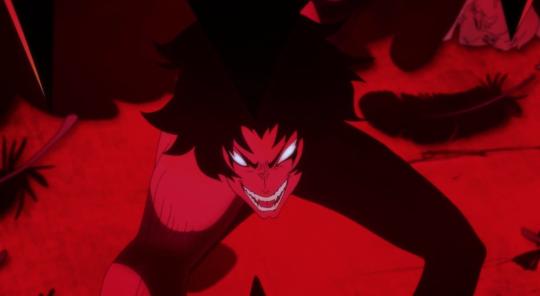
Devilman: Crybaby by Science Saru, a series itself based on one of Evangelion’s chief influences
The new anime boom would also reflect its origins in a number of different ways. More than a few of the new shows to debut in the late 1990s and early 2000s were directly influenced and impacted by Neon Genesis Evangelion, including such notables as RahXephon and Revolutionary Girl Utena. More subtly, the starkly realistic depictions of violence and sexuality in NGE as well as its bizarrely surreal imagery encouraged many directors to try similar techniques, resulting in a shift in style throughout the industry.
Neon Genesis Evangelion’s influence on later anime can be attributed in some ways to its technical sophistication. At its most basic, visceral level, NGE was startling to look at. Even compared with other Gainax works that had come before it, like Nadia: The Secret of Blue Water or Gunbuster, NGE immediately stood out as something unique in an increasingly homogeneous industry. The character designs of Yoshiyuki Sadamoto, strangely subdued yet striking and expressive, helped distinguish the cast while Ikuto Yamashita’s monstrous and biomechanical designs for the Evangelions did the same for the show’s mechs. Combined with the intense direction of Hideaki Anno, Kazuya Tsurumaki, Masayuki, and others NGE drew the eye right from the start.
The technical splendor wasn’t just limited to NGE’s art design or animation either. The voice talents provided by performers like Megumi Ogata, Kotono Mitsuishi, Megumi Hayashibara, and Yuko Miyamura gave life to the characters and helped audiences empathize with them, despite their dysfunctional and emotionally-wrought nature. Also contributing to the audio portion of Neon Genesis Evangelion was Shiro Sagisu, whose music swung significantly from jazzy to melodramatic and even to surreal, changing and evolving to match each scene with an appropriate mood. Assisting Sagisu was the vocal work of artists such as Yoko Takahashi, who made the show’s central theme, “A Cruel Angel’s Thesis,” a pop sensation.
But while the technical triumphs of Neon Genesis Evangelion certainly contributed to the show’s lasting appeal and influence, they’re hardly the whole story. For many viewers, the appeal of Evangelion went well beyond the surface, to narrative and thematic elements they felt spoke directly to them. Indeed, it is arguably NGE’s complex characterization, unorthodox narrative structure, and thematic depth which have made it stand out as one of the most legendary examples of Japanese pop culture.
A Cruel Angel’s Thesis
It’s not an exaggeration to say that essays—and books—have been written about Neon Genesis Evangelion and its thematic qualities. Most of this has been concentrated in Evangelion’s own native Japan, but the sensation has breached the other side of the Pacific as well, resulting in comparisons to the works of David Lynch and other Western directors. Contributing to this no doubt has been Anno’s own numerous references in NGE not only to native Japanese culture but to the West as well, with tributes to works like 2001: A Space Odyssey, The Andromeda Strain, and UFO found frequently throughout.
The most obvious thematic element present in Evangelion, at least to Western eyes, is its frequent allusions to Christianity, Judaism, and Islam. It’s not hard to see why: the monstrous foes besetting humanity are “Angels” who shoot cross-shaped energy bolts, which the main characters fight with “Evangelions” (the Greek word from which “evangelism” derives). Coupled with other bits and pieces here and there referring to original sin, the will of God, and ancient Judaism, these details give Evangelion a strikingly religious appearance to Western viewers.
However, while they’re certainly the most obvious elements in Evangelion, the religious references are also easily some of the most transient and insubstantial. Although initially viewed as central to the plot by many Westerners, it has since been revealed that most of the Biblical references are there for styling rather than substance and were largely intended to make the show stand out. In many respects, the usage of the Abrahamic faiths in Evangelion is similar to the use of Buddhism in The Matrix or Egyptian mythology in Stargate: a bit of fun exoticism to keep things interesting.
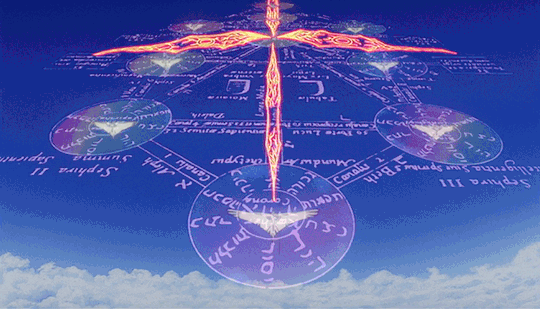
The Sephirot from Kabbalah, as represented in The End of Evangelion
That being said, the religious themes are not as vacuous as is sometimes alleged and the sheer number and obscurity of some of them indicates some real effort on the part of Anno. Each of the Angels, for instance, (which are called shito⁴ in Japanese, meaning “messenger” or “apostle”) are named after actual angels from Abrahamic mythology and their names, when translated from Hebrew or Arabic, often do indicate their nature in some way (e.g., Arael’s name means the “light of God” and it is an enormous winged being who attacks the characters with a beam of light). And while the use of the Kabbalah’s Sephiroth may be perfunctory, many other references to Jewish mysticism appear more meaningful, such as the Chamber of Guf or the duality of the Trees of Life and Wisdom.
Less obvious to Western eyes but possibly even more sophisticated are the references Evangelion makes to non-Abrahamic religions. There is, for example, the notable similarity between what the show terms “Instrumentality” and traditional descriptions of “egoless” nirvana in Buddhism (a religion also referenced by way of the Marduk Institute’s 108 dummy corporations).⁵ Japan’s native religion Shinto also shows its hand, most notably through the depiction of the Evangelions themselves, which Anno consciously designed after the monstrous oni of Japanese legend. All in all, while he may not have intended to portray a particular theological message, it’s clear that Anno put a lot of thought and research into giving Evangelion a suitably mystical appearance.
However, obsessing over the religious imagery in Evangelion obfuscates something far more important: Evangelion isn’t really about religion. Rather, where Evangelion’s thematic depth and complexity most clearly comes into play is psychology and philosophy of the mind.
Neon Genesis Evangelion is often described as a deconstruction of mecha anime. To a large extent that’s true, but it’s deconstruction is specific in outlook, focused on the psychology of its characters in the form of a question: just what kind of people would put the fate of humanity in the hands of adolescent children? And just what would that kind of stress and responsibility do to a child’s mind? In that regard, NGE is in far closer in kinship to Ender’s Game than to its natural predecessors like Macross, Gundam, or Gunbuster.
When the story of Neon Genesis Evangeliom begins, the world has already experienced disaster on an unprecedented scale. 14 years before the show begins, a massive apocalyptic event called the Second Impact devastated the Earth’s climate, precipitated global nuclear war, awakened the monstrous Angels, and resulted in the deaths of half of all humans on the planet. In response, civilization has been restructured and militarized in anticipation of an even worse Third Impact threatened by the Angels. To combat this threat, the secretive organization Nerv assembles biomechanical monsters of their own (the Evangelions) which, as it so happens, can only be piloted by teenagers.⁶
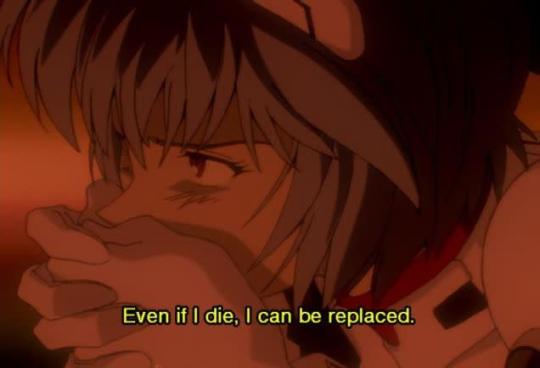
Rei Ayanami, the First Child, believes that her life is expendable
This is the kind of world people like Misato Katsuragi, Gendo Ikari, and Ritsuko Akagi live in and it’s the severity of their situation which ultimately shapes their actions. Although many of the adults, particularly Misato, wish they could let the series’ child protagonists lead a normal life, they know that’s not an option. As a result, the adult characters are driven towards a cold pragmatism that means, no matter how warm or compassionate they may act towards their wards at any given time, they’re still ready to sacrifice them when necessary.
This ruthless approach has its costs, however. The constant pressure to succeed, alongside the emotional whiplash they receive at the hands of the pilots’ supervisors and the repeated trauma they experience in combat results in each pilot’s gradual psychological degradation. Beginning as relatively competent and capable (if slightly dysfunctional) individuals, each pilot eventually succumbs to their trauma and breaks, causing them to isolate themselves from one another and resulting in a breakdown in morale which puts not only themselves but humanity itself at risk.
In keeping with this theme of psychological frailty and the ways in which we as people both intentionally and unintentionally harm those we care about, including those we care about, the series makes numerous allusions to the work of past psychologists and philosophers. Many concepts are mentioned specifically by name, such as the “oral stage,” “separation anxiety,” or the “hedgehog’s dilemma,” while others are alluded to more subtly, such as the Oedipus and Elektra complexes, post-traumatic stress disorder, schizophrenia, or Lacan’s dichotomy of the constructed and ideal selves.
Hideaki Anno has himself said he researched psychology both before and during the production of Neon Genesis Evangelion and that many of the show’s characters are based upon both these concepts and his own experiences. He has, for instance, described the protagonist Shinji as a reflection of his own conscious self, while the emotionally withdrawn Rei is a manifestation of his unconscious, and the enigmatic Kaworu is his Jungian shadow. Altogether, the works of Freud, Lacan, Schopenhauer, Hegel, Jung, and Sartre have all been identified by staff or critics as influences on the show’s characters and plot.
One of the chief psychological themes in Evangelion is abandonment, particularly by those you love or have been cared for by. Throughout the story—in its past, present, and future—each of the main characters is abandoned by people important to them: their parents, their guardians, their lovers, their friends, etc. Invariably, this abandonment leads to a breakdown in identity and self-confidence, as each character is forced to redefine themselves from within after devoting so much of their identity to how they were perceived by others. Thematically matching to this issue of personal abandonment is humanity’s own abandonment by their unknowable creator eons ago, a detail alluded to occasionally as the story progresses. Like the individual characters then, humanity must learn how to manage and master its own fate when it has no one left to depend upon.
The Hedgehog’s Dilemma
These themes, however, would have little resonance were they irrelevant to the show’s human drama. It is to Neon Genesis Evangelion’s credit that they are not; each of the characters represent the show’s themes in both significant and personal ways. It is quite arguable then that it is the show’s protagonists, however controversial they may be either as individuals or an ensemble, which have truly allowed NGE to endure for decades as an icon of Japanese pop culture.
The most important of Neon Genesis Evangelion’s characters by far is easily Shinji Ikari, the pilot of Evangelion Unit-01 and the son of Gendo Ikari, the enigmatic director of the Evangelion program. At the beginning of the series Shinji is called to Nerv by his father, who abandoned him years earlier following the death of Shinji’s mother. Shinji hopes that this sudden call is for the purpose of reunion, but he is quickly disillusioned when his father reveals to him that he needs Shinji to pilot one of the monstrous Evangelions he’s built—a machine Shinji has hitherto never heard of—and to save humanity from extinction. Brokenhearted by his father’s coldness and terrified of the task he’s been blackmailed into performing, Shinji puts off his own desires and self-identity aside for the sake of pleasing his father and others, becoming the so-called Third Child.

Series protagonist Shinji Ikari, the Third Child
Shinji’s a complicated character and one many find difficult to empathize with. He is self-consciously cowardly and phlegmatic, prone to self-criticism, and afraid of getting close to others for fear that they’ll reject him. At times he thinks seriously about running away from his responsibilities, but whenever he actually does he quickly returns, unable to commit to so blatant an act of rebellion for long. Despite this and despite his own reliance on others to define his value, Shinji does have his virtues: he’s thoughtful, easy to get along with, and proves remarkably skilled at piloting, even if he has no real passion for it.
Shinji’s commanding officer, Misato Katsuragi, is NGE’s most prominent adult character and (according to Hideaki Anno) the series’ deuteragonist.⁸ Loud, goofy, and irreverent, Misato strikes quite a different first impression than Shinji, but despite their outward differences they’re actually quite similar people with comparable issues, merely approaching them in different manners. Like Shinji, Misato feels abandoned by her father, who neglected her and her mother before his death years ago. But despite that Misato still yearns for his affection, manifesting her desires in the form of her relationship with Ryoji Kaji, a coworker and lover she admits resembles her father. And, also like Shinji, Misato fears getting close to other people for fear of being hurt, but whereas Shinji manages his anxiety by avoiding people, Misato does so by acting flippant and flirtatious in public, living lightly and maintaining only “surface level relationships.”
Shinji’s move into Misato’s apartment comes largely at her insistence and Shinji is initially quite uncomfortable with it, a feeling which does not subside when he learns she’s an extremely messy housekeeper and an alcoholic. But despite her irreverent personality, Misato turns out to be a deeply caring person who wants very much for Shinji to be happy and, over the course of the series, she tries to direct the development of Shinji as a good parent would, all the while concerned her own flaws make her an unsuitable guardian. Notably, these moments where the two of them bond are some of the most light-hearted in the series.
Although Shinji is the first pilot the series introduces, he is preceded by two others at Nerv. The first, Rei Ayanami, is arguably Neon Genesis Evangelion’s most popular (and certainly influential) character. Enigmatic and asocial to a degree that goes beyond mere awkwardness, Rei lives alone in a desolate apartment she doesn’t even bother to clean, close to no one but her pseudo-guardian Gendo Ikari. Because of her closeness to his father, who has raised her as his own daughter, Shinji initially sees Rei as a replacement for him. It soon becomes apparent however that Rei’s trust and faith in Gendo go well beyond that of a healthy parent-child dynamic. Obedient to a fault and unconcered for her own well-being, Rei causally throws herself into danger for Gendo and Nerv and comes across as emotionless to those around her.
But beneath Rei’s cold, ultra-stoic exterior beats a heart as capable of joy and sorrow as that of any other. Far from the robotic doll many assume her to be, Rei has a secret yearning for others to understand her and her them and, over the course of the series, slowly opens up to Shinji. But although she desires human contact, she doesn’t really know how to initiate it and she’s terrified of the possibility that there’s something about her that makes her fundamentally unlike other people.
Asuka Langley Soryu, the third of the child protagonists to show up,⁷ strikes about as strong a contrast to Rei as one can imagine. Egotistical, loud-mouthed, and possessed of far more bravado than either Shinji or Rei, Asuka joins the cast about a third of the way through the show, after transferring from Nerv’s facility in Germany. Raised since childhood to be a pilot, Asuka prides herself on her skills and looks with disdain on Shinji’s self-deprecating nature and inability to recognize his own accomplishments. Already a college graduate and convinced she’s as much an adult as anyone, Asuka also proves precociously sexual, pining for both Misato’s lover Kaji and, to a lesser but still significant extent, Shinji himself, whom she frequently teases for attention.
Asuka is like Shinji a controversial character; people often look at Asuka and see one of two sides to her: a selfish jerk who bullies Shinji and Rei or an accomplished young woman whose confidence and inner strength makes her the real hero of the show. The truth, however, is that in many ways she’s both. Asuka really is brave—far braver than Shinji or even Rei, who doesn’t really fear death—and she’s definitely skilled. But she’s also prone to jealousy and vindictiveness, as well as a consciously manifested attitude of not caring for anyone. In many ways, however, her bravado is a cover for own insecurity, built upon the belief that no one really likes or loves her.
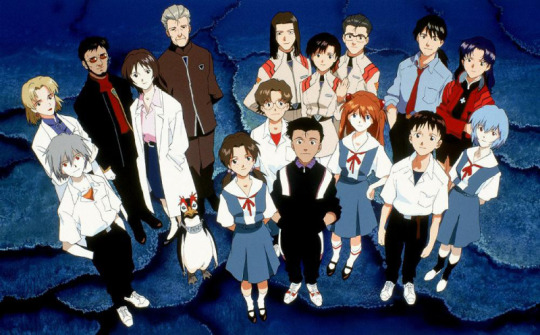
The cast of the original Neon Genesis Evangelion
There’s a lot to admire about NGE’s characters, even with all their flaws and personality disorders. It’s easily got one of the most complex and diverse casts in anime and there has to be something said for the fact that of its four principal characters, three are female, allowing it to easily pass the Bechdel-Wallace Test (which it does). The characters each have their own virtues, which in a more easygoing series could make them quite endearing. Lead protagonist Shinji’s selfless and has a fairly noble streak, though it’s hidden deep beneath his own self-doubt and loathing. The adult Misato’s fairly protective of her young charges, at least insofar as she is allowed to be given the circumstances, and is also quite a bit more capable than many expect. Selfless Rei’s loyalty and discipline easily make her one of the most sympathetic characters in the series, even if she does sometimes come across as alien or inhuman. And there’s little question that the daring Asuka has enough chutzpah for the whole cast.
But it could also be argued that the complexity and harshness of NGE’s characters which ultimately make them work, even if at times they also make the show hard to watch. Shinji, Misato, Rei, and Asuka are not the idealized paragons of humanity you’d expect to find in most television shows aimed at teenagers, but they’re not the imaginings of a bitter misanthrope either. They’re deeply flawed, yes, and when they’re hurt they keep on hurting, but they also keep going and keep trying to find a way to live with others that doesn’t result in pain. It’s this idea, the recognition that people screw up and hurt one another but want to do better, that really enlivens the franchise. For all the reputed darkness of Evangelion’s story, it is in many ways idealistic, always hopeful that it’s characters might find a way to be happy. You don’t have to be broken, it says, even if you are damaged.
And it is that core ethos of qualified hope that elevates Neon Genesis Evangelion from just another mecha anime or even a deconstruction of mecha to something more. Something sublime and, in its own strange way, even inspirational.
The Sickness unto Death
At this point I feel it’s useful to provide some personal background. I first watched Neon Genesis Evangelion when I was in high school, sometime between my third and fourth years. My initial reaction was, I think, largely typical. The first episodes interested me and as the storyline moved forward and became more complex, I became more invested in the show’s events and characters. I even appreciated to some extent the bizarre and abstract final two episodes, though I’d hoped for a more conventional ending. Then, I watched The End of Evangelion, whoch left me shocked and dismayed at its harshness. I still cared about the series, but I felt more ambivalent as a result.
Over the next few years I continued to keep up with the Evangelion fandom to a small extent, checking out the rumors about the new movies and reading some fan fiction online, but I gradually drifted away. None of the fan speculation or fiction really seemed to scratch the same itch the original series had and eventually my interests in anime shifted more towards Ghost in the Shell: Stand Alone Complex and Fullmetal Alchemist. Evangelion, as much as I’d enjoyed it before, fell gradually into the background of my life.
And then I entered college.
In my youth, I was generally regarded as a “bright” student, fawned over by teachers and regarded by my peers as either a genius or a “know-it-all,” depending on how much they liked me (or didn’t). As I entered the final years of high school it was clear that I was expected to excel in university. But when I actually began my college career I quickly faltered. Depressed, socially isolated, and exhausted from getting four to six hours of sleep a night, my grades slipped quickly and my social life evaporated. For awhile, I tried to deny my problems and ignore them, believing I could power through without help. Eventually, though, I had no choice but to confront my issues: I was put on academic suspension and my financial assistance was pulled.
I was devastated. I had no idea what to do. I didn’t know how to tell my parents, who I’d let believe I was doing fine. I didn’t know where to go with my life now that I’d failed to live up to the expectations I’d allowed other people to put on me. I didn’t even really know who I was anymore. If I wasn’t a brilliant student and child genius, who was I? In my own eyes I was worthless and contemptible.
Eventually, with the help of my family and friends, as well as staff from the university, I was able to make my way back to daylight. I began to undertake counseling. I went to community college to bring my GPA back up. I started talking more openly with my loved ones about my problems, even though I was worried it would make them think less of me. And I began to be more honest about my flaws and limitations.
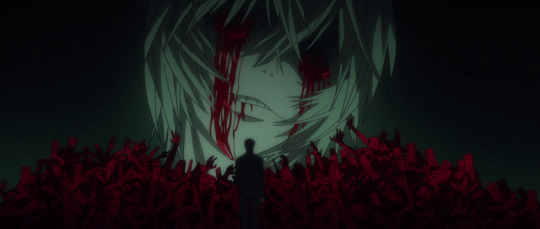
A scene from Evangelion 3.0: You Can (Not) Redo, the third Rebuild film
It was also around this time, rather coincidentally, that I began to seriously revisit Evangelion. I was prompted, as much as by anything else, by the release of the new “Rebuild of Evangelion” films. After my brothers and I attended a screening of the second film’s release in early 2011 with several of our friends, the latter (hitherto unfamiliar with Evangelion) expressed interest in catching up with the franchise. Indulging them, my brothers and I rewatched the original TV series. To my surprise, I began to see the series in a new light. Where once I had simply been sympathetic to Shinji, Misato, Rei, and Asuka’s inner turmoil, now I felt deeply empathetic. Where previously the show’s harshness had at times alienated me, now it felt deeply relatable and truthful. And where earlier the TV show’s decision to focus on the internal psyches of its main characters instead of the plot had puzzled me before, now I felt as if I understood it completely. I even began to appreciate the theatrical finale, a film so brutal some regard it (falsely) as Anno’s revenge against fans angry with him for the original ending.
What had changed? Certainly not the show. Rather, it was my perspective. I possessed now of a viewpoint I hadn’t held earlier. I knew now what it was like to be full of contempt for one’s self, to be a defeated shell of a person who felt as though their value was slipping away or was already entirely absent. I knew what it was like to believe I was a failure in every meaningful way. In other words, I’d gained the perspective of a person suffering from depression. The same perspective as that of Evangelion’s principal characters as well as their creator, Hideaki Anno.
It’s hardly secret knowledge that Hideaki Anno was suffering from depression when he first created Neon Genesis Evangelion. The extent of his depression, however, was far graver than is generally recognized. When Anno began work on the project that would become NGE, he had already been suffering from severe depression for at least four years. In a statement released with the first volume of Evangelion’s manga (comic) adaptation Anno described himself as “a broken man... who ran away for four years, one who was simply not dead.” And while the production of NGE had originally been intended to break him out of a rut, the stress only compounded the severity of his condition. By the time of the show’s completion Anno was, by his own later admission, borderline suicidal.
No one’s ever said precisely what drove Anno over the edge publicly, but it’s widely agreed it had much to do with the production of his previous work, Nadia: The Secret of Blue Water. Originally conceived by Anno’s mentor Hayao Miyazaki in the mid-1980s Nadia was eventually handed off to Anno after Gainax made a bid for the project. Far gentler and family-friendly than NGE, the comparative sweetness of Nadia obscured a troubled production that saw animation work outsourced and Anno frequently butting heads with NHK, the series’ broadcaster, over the show’s content and creative direction. Coupled with rumored trouble in Anno’s personal life, the experience proved too much for him, driving him into the deep depression that would haunt him for most of the 1990s.
The roots of Anno’s emotional troubles may go deeper, however. Long regarded by those close to him as a lonely and eccentric oddball, Anno was socially withdrawn as a child, preferring to spend his time watching and recreating scenes from his favorite anime and tokusatsu to interacting with others, a choice he’d later say he regretted. In 1983, due in large part to his social isolation and inactivity at school, he dropped out of university and lived homeless for a time before he was discovered by Miyazaki and employed as an animator for Nausicaä of the Valley of the Wind. The experience proved vital to his career and soon afterward he and a few friends gathered to form Gainax, their own animation studio. It was during this time that Anno directed Gunbuster alongside working on other projects such as Royal Space Force: The Wings of Honnêamise and Grave of the Fireflies. For a time, he seemed happy. But then came Nadia and he withdrew entirely from his work and social life, before reemerging to work on Evangelion.
Anno’s turbulent life and emotional turmoil is reflected in the characters of Evangelion, many of whom enter the story damaged but apparently functional only to completely fall apart later on. Shinji is lonely and dependent when he first appears, but he still manages to form friendships and do what’s required of him. Misato may be an alcoholic with a mess of a home, but Nerv’s trust in her is rewarded time and time again by her effectual planning and coordination of her pilots. Rei’s cold and emotionally withdrawn, but her dutiful selflessness both inspires and attracts others to her. Asuka can be arrogant and reckless, but she’s also intelligent and capable of real kindness towards those she respects. Like Anno in the early days of Gainax, they all seem to be on top of things.
But just when it seems like the team’s getting the hang of things and finding their groove, disaster strikes. Soon, as one crisis mounts on top of another, from near-death experiences to being forced to hurt his friends, everything falls apart. Shinji’s newfound self-confidence shatters and he becomes even more needy than before. Misato’s constructed domestic bliss blows apart just as her own convictions are thrown into question by new revelations about her work. Rei becomes colder and more distant than ever before, withdrawing even from Gendo, the one person she trusts implicitly. And Asuka collapses into a pit of self-loathing despair, savagely lashing out at anyone who gets close to her. It’s ugly, it’s nasty, and it’s real.
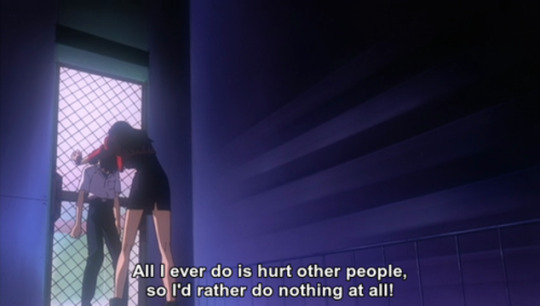
Shinji admits to his feelings of worthlessness to Misato Katsuragi, his guardian and confidante, in The End of Evangelion
This cycle of crash, despair, and recovery is not unusual for suffers of depression. Contrary to what is often thought, depression is not really something you have at one point in your life and then “get over;” it’s something that can shadow you your entire life, kept in check by momentary pleasures and good times but always threatening to surge and overwhelm you when things go awry, sending you into a spiral of self-hate and abnegation that can last for weeks, months, or even years. Friends and family help keep it in check, as does therapy and pharmaceuticals, but it never goes away completely. The only thing you can do is recognize the symptoms and do your best to confront them. You have to keep going. You can’t let your fears drive you to abandon the world. You must not, in other words, run away.
And really that’s what the characters’ struggles in Evangelion come down to: facing reality and acknowledging their flaws while also recognizing their own potential to overcome them and the painful struggle for acceptance we all, on some level, endure. The first instinct of every character in the series is to run away from their problems, to obscure them with outwardly derived duties, relationships, or purposes. Shinji and Rei both look to Gendo, Misato to her job, and Asuka to her pride as an Eva pilot, but all of them are running away and, as a consequence, are unprepared to deal with reality when it hits them flat in the face.
Or are they?
As Long As You Try to Continue to Live
It’s worth noting that when Anno created Neon Genesis Evangelion he didn’t initially set out to create a dark and cynical deconstruction of mecha anime. When asked what initially gave him the impetus to create NGE, Anno has said repeatedly that he originally meant to make a show more in the spirit of Gundam or Space Battleship Yamato, two of his favorite TV shows from his youth, but without the shackles inherent to sponsorship by a toy company, as was common practice for anime at the time. “I made Evangelion to make me happy and to make anime lovers happy,” he said in a 1996 interview, “in trying to bring together the broadest audience possible.”
But as pre-production on the series progressed (and his emotional state regressed) Anno became further disenchanted at the state of anime, concerned that fans were turning to it as a way to escape reality as he himself felt compelled to. “I wonder if a person over the age of twenty who likes robot anime is really happy,” he stated in an article for Newtype half a year before the series aired. This change in perspective, coupled with his resurgent depression, caused Anno to shift focus as he became more and more concerned with the characters’ emotional development, hoping that by the end of the series’ narrative “the heroes would change,” breaking away from their regressed emotional state and achieving the same emotional well-being and self-dependence Anno still sought for himself and which he felt his audience needed as well.
It’s this perspective of Anno’s—that anime otaku were and are caught in a kind of prolonged childhood—which has led to the impression that Anno hates otaku and believes their lives to be worthless. But the truth is that Anno’s thoughts on the subject are quite a bit subtler and more reflective than many give him credit for. Far from hating otaku, Anno counts himself among them and feels defensive whenever they’re derided by others. The issue, he thinks, is less that otaku are permanently stunted and more that they’re afraid or reluctant to open themselves to new experiences:
“I feel that otaku have already become common to all countries. In Europe, in Korea, in Taiwan, in Hong Kong, in America, otaku really do not change. I think that this is amazing. I say critical things towards otaku, but I don’t reject them. I only say that we should take a step back and be self-conscious about these things. I think it’s perfectly fine so long as you act with an awareness of what you are doing, self-conscious and cognizant of the current situation. I’m just not sure it’s a good thing to reach the point where you cut yourself off from society. I don’t understand the greatness of society, either. So I have no intention of going so far as to call for people to give up otaku-like things and become more suited to society. Only, I think there are many other interesting things in the world, and we don’t have to reject them.”
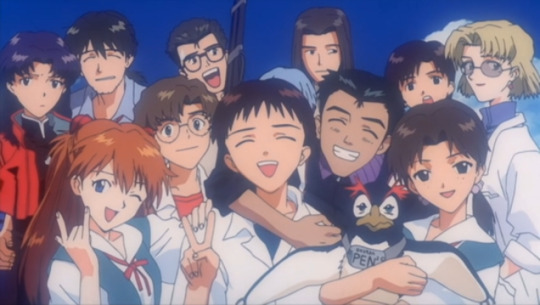
Despite everything, the characters still care for and want to see one another happy
And that’s what I mean by Evangelion’s subtle, qualified idealism. Despite Anno’s frequent cynicism and troubled state of mind during the production of the series, it’s clear that at heart he’s a person who believes people can change and improve themselves. He’s someone who believes that, even in the worst or most desperate of situations, people can find happiness if they’re open to it. “As long as you try to continue to live,” one character states in The End of Evangelion, “any place can be a heaven… there’s a chance to become happy everywhere.”
It would certainly be easy to define the characters of Evangelion by their failures and—given the magnitude of their failures—it’s understandable why many do. After all, much of the series’ narrative is caught up (as I noted earlier) in deconstructing the kind of scenario typical of mecha shows and examing what really would happen if teenagers were put in charge of the world’s salvation. As such, as in other deconstructionist narratives (such as the Battlestar Galactica reboot or Watchmen), the characters screw up about at least as often as they succeed.
That being said, more often than not, when the characters are hit with tragedy or trauma, they eventually recover and bounce back. They’re definitely damaged and shaken by their experiences, but they keep on going anyway. As much as Shinji fears and abhors piloting he’s also someone who, when people are really depending on him, will almost always get right back in the cockpit and try to help. Rei may be over-compliant and lack any regard for herself, but she’s also capable of defying orders when she knows they’re wrong. And for all Asuka’s jealousy and grandstanding, she’s also a person deeply capable of love and self-sacrifice, who would die for those she cares about.
This ray of hope at the core of Evangelion’s story is made most clear in the television series’ original broadcast ending, wherein Shinji rediscovers his own self-value and the joy of living in a world with other people and declares that, although he hates himself, “maybe, maybe I could love myself. Maybe, my life can have a greater value.” But such idealism is even found in the much more outwardly harsh vision of The End of Evangelion. After coming face to face with the world he thought he desired—a world without pain or individuality—Shinji realizes that it’s also a world without happiness. “This isn’t right,” he says. “There was nothing good in the place I ran to, either. After all, I didn’t exist there... which is the same as no one existing.” Realizing this, Shinji chooses to return to the physical world he knew, even if it means feeling pain again.
The idea that joy and pain are in many ways coterminous with one another is hardly original to Evangelion; indeed, it’s a fairly important concept to Buddhism. But I’ve rarely seen the idea expressed in quite the same way as Evangelion, in a way that’s both fully formed and strangely life-affirming. Pain is inevitable, but so is joy. You’ll be hurt, but it’s better than never feeling anything at all and may only give you more appreciation for what you have. You may feel alone, but you’re not; everyone suffers in their life at one point or another, and you don’t have to carry that burden by yourself.
Reflecting upon and considering these themes through Evangelion, as I rediscovered it during a low point in my life, allowed me to appreciate it in a way I’d never been able to before. And it also helped me to move on with my life, to accept the losses I could never recover while also believing it didn’t mean my own life was over. Like Shinji, Misato, Rei, and Asuka, I didn’t have to be defeated by my experiences. I could keep on going. I didn’t have to run away. And that’s a message I believe everyone needs to hear at least once in their life.
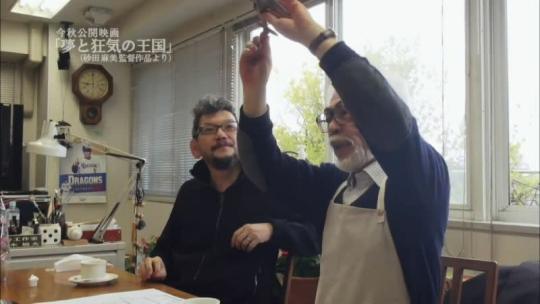
Series creator Hideaki Anno (left) with mentor Hayao Miyazaki (right)
Today, Hideaki Anno has found some peace of mind. He’s happily married, the head of his own production company, and he’s physically healthier too. He still suffers from depression—he’s not cured by any means and he probably never will be; depression isn’t that kind of disease. But he’s able to fight it now and to find the happiness he once believed illusory. He has the same hope he wanted his characters to find in Evangelion. And which I also feel I’ve found, in some small part, thanks to him.
¹Throughout this essay, Neon Genesis Evangelion or NGE refers to the original TV series, The End of Evangelion refers to its theatrical sequel, Rebuild of Evangelion refers to the series of rebooted films produced decades later, and Evangelion on its own refers to the franchise as a whole.
²Specifically, shōnen, meaning boys aged between 12 and 18.
³The term has since been adopted by Western anime fans, but in Japan the word does not necessarily refer to animation fans specifically but to anyone with an obsessive interest in something.
⁴Ironically, “messenger” is a literal translation of the word angelos from Greek—the origin of the English word “angel”—as well as the original Hebrew mal’akh.
⁵The numbers 8 and 108 are both significant in Buddhism. 8 refers to the Noble Eighfold Path to enlightenment. 108 refers to several things, including the number of beads in a Vajrayana prayer rosary, the number of questions asked of the Gautama Buddha in the Lankavatara Sutra, or the number of times Japanese Buddhist temples ring a bell on New Year’s.
⁶The reason for this is never fully explained. Behind the scenes, this was largely because of the show’s target demographic. In universe though it may be related to the secret nature of the Evangelions themselves, which have human souls.
⁷Deuteragonist is a term which means the second-most important character with whom the audience’s sympathies are intended to lie.
⁸Though referred to as the Second Child(ren) because she was the second candidate approved to pilot Evangelions, before Shinji but after Rei.
43 notes
·
View notes
Text
Medea Rambles - Changing Voice Actors (in anime)
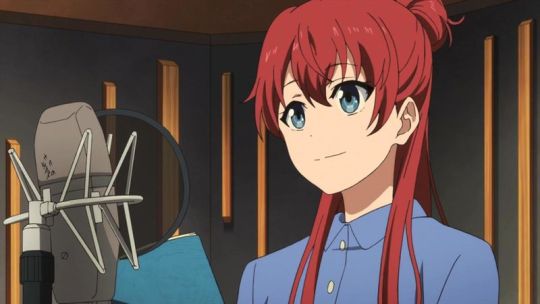
Your favorite character! You love the way they look, the way they act, and in many cases, the way they sound. Yeah, voice actors are a vital role when it comes to bringing life to any character in animation. But what happens when your favorite character doesn’t sound the same as he/she used to?
It could mean your favorite character’s voice actor has CHANGED.
Don’t fear! This happens all the time and many factors can come into play to make that happen.
Because I’m bored today and have nothing better to talk about...
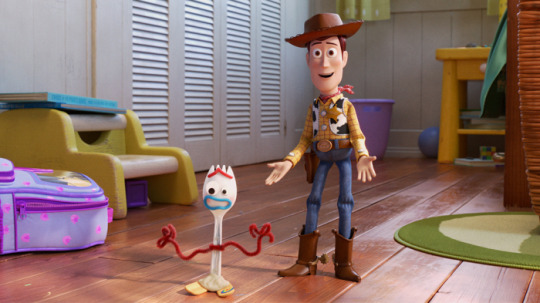
ABSOLUTELY NOTHING BETTER TO TALK ABOUT!
(seriously, I do like this movie)
I want to talk about voice actors! Because I like talking about them. I have the highest respect for these people and these people give it their all with the characters they voice. Every scream Sean Schemmel ever gave as Goku, every cackle Sayaka Ohara gave as Beatrice, these performances can be considered remarkable and memorable as time goes by.
But we must all remember this. Voice actors are just like you or me. They are human. No one lasts forever. And when the unthinkable happens and a voice actor dies, many creators grapple with either retiring the character or hire a replacement.

In the anime world, it’s most likely the latter because there’s no way in fuckdom Professor Oak would EVER be retired as a character (R.I.P. Unshou Ishizuka).
Even though no one could match the charm of Unshou Ishizuka as Professor Oak and many other roles, we accept the change. But it’s not just death. Life in general can get in the way. Many voice actresses have long-running roles to voice even when they’re pregnant. So when they go on maternity leave, they’ll need a replacement. However these are thankfully temporary so we were able to get Mariya Ise to voice Bonnie on Pokemon again and soon Brina Palencia will be back to voicing Juvia on Fairy Tail (and congrats to her for the birth of her first baby).

Child actors in anime will probably not have the same voice they had 10 years ago and if a role is making a revival in the present, that person will more than likely not play that same role. Perfect example there would be Aaron Dismuke who was a young boy when playing roles like Al on Full Metal Alchemist and Hiro on Fruits Basket. When FMA: Brotherhood came out, it was very clear that Dismuke was well past puberty and so his role of Alphonse had to go to someone else.
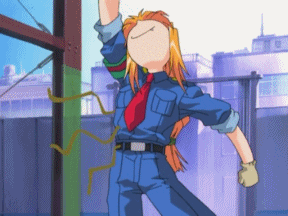
And voice actors who sustain injury to their voices during production. Jessica Calvello, the original voice of Excel from Excel Saga literally blew out her vocal chords for this role and had to have her role replaced for the second half of the series. Was it noticeable? Fuck yeah it was. But it was for the greater good. Plus her replacement wasn’t that bad. In fact she did a good job with the wacky behavior of Excel. The dubbing company was on a deadline and it had to be met. So what’s done is done. I’m just happy Calvello healed from that and is still a voice actor.
And other issues like scheduling conflicts and controversial issues come into play throwing a monkey wrench in productions. But we all move on for the most part.

WE ALL MOVE ON!
Anyways, for the most part these are just singular acts concerning one or more characters at a time. What happens when AN ENTIRE CAST IS CHANGED?!
Well...it happens! It just depends on the circumstances with the anime. And let’s face it, some of these changes can be for the greater good. Take Sailor Moon for example. Yes, we all know this tale! Sailor Moon was originally licensed by DIC for the first few seasons. And then the next few seasons it was taken over by (the thankfully gone company) Cloverway. With both companies, the anime was given the royal fuck-over with skipping episodes, chopping or editing scenes, Americanizing everything, downplaying homosexuality, shotty voice work, and blow off an entire season. And during the transition from DIC to Cloverway, some of the voices were changed and it was noticeable.
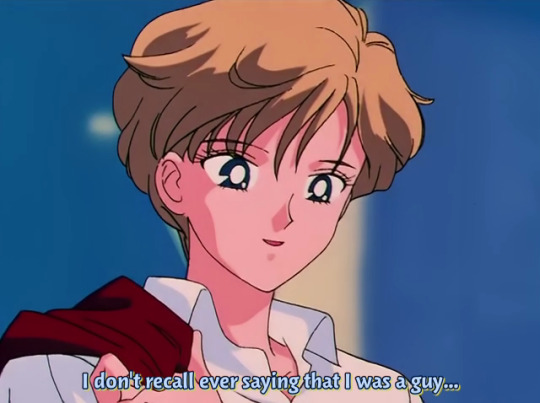
Decade later, Viz Media swoops in and gives the fans what they waited for. The entire series redubbed with original names, Haruka and Michiru are lesbians, Fisheye has a penis, and season five can finally be shown. But for many of us, we were delighted to hear the voices to the characters we grew up with finally getting some justice. While many of us loved Sailor Moon growing up, it was kind of painful to hear some of the voices. I once again point to Haruka’s original voice (or Amara as they called her). And the same could also be said about the first dub to One Piece. This redub needed to happen! No one objected to this, nor should they! But that’s just one person’s opinion here. Others, not so much. Especially the next one!
POKEMON! Yes another anime that went through a giant change. In 2006 (right in the middle of a fucking arc mind you), Pokemon switched the dubbing rights from 4Kids to TAJ/Pokemon Company. To which we all said...
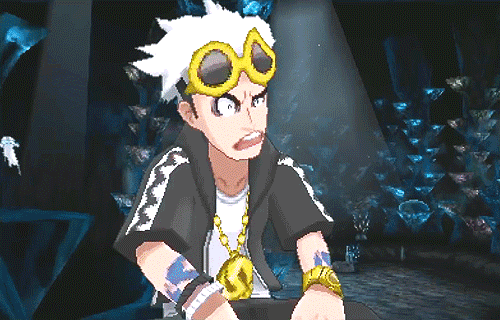
And then they got rid of all the voice actors who have voiced these characters for YEARS and replaced them. To fans of the show from the very beginning it was noticeable and STILL IS. To people who were born in 2006 and are watching this now as a teenager (fucking shit I feel old just realizing that), they probably wouldn’t give it a second thought.
I know it hurt fans and voice actors at first but look at the bright side, a lot of them went on to do great things after Pokemon. Veronica Taylor is busy doing Sailor Moon. Eric Stuart is still touring. And Andrew Rannells...I don’t think I need to bring up Book of Mormon. As it has been over 13 years since the change I think many of us have gotten used to or have accepted this.
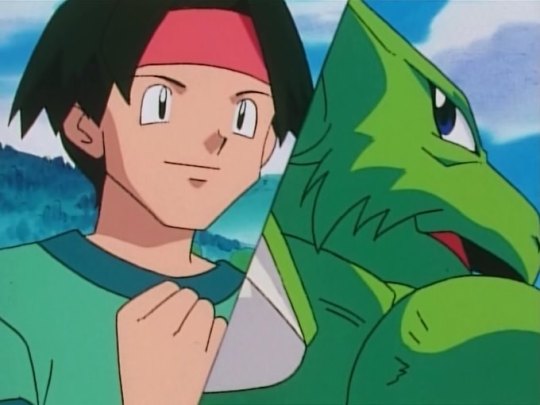
Does that mean you’ve accepted Tracey’s new voice?
No. Fuck no. And I never will.
Yeah, Tracey’s a different story. I refuse to accept that change.
Anyways back to voice actors changing! Pokemon and Sailor Moon were kind of special cases as those had a bunch of in-fighting to get what we got. Same with One Piece because no one wanted to watch that hot mess get raped with censored items, Americanized names, and a horrific rap song that even Vanilla Ice would say that’s too much. But sometimes, an anime that has finished its airing and has been dubbed and released in the states, it will be out of print or its license will be expired.

Animes like Berserk, Squid Girl, Rozen Maiden, and Shakugan no Shana were all owned, licensed, and dubbed by a company. But then their licence would go belly-up and their title would no longer be available for purchase (at a decent price) or streamed on a website. Luckily, these titles were eventually saved. Kept the same is a different story there.
All four of those titles had one or more of their seasons dubbed and anything else the series had that wasn’t dubbed was now going to be dubbed by their current licencor. In many of these cases it was changed due to the fact that many of the original voice actors for these roles are not where this certain anime is being worked on. Like in the case of Shakugan no Shana, many of the voice actors reside in Vancouver BC and FUNimation, the licensing company is in Texas. Hence, you get the second and third season sounding way different from the first season. Yes, it’s convenient or cheaper to use people in your studio instead of waiting to hear from Canada. So that’s a possibility of why they do that. Or of course, scheduling issues/conflicts or wanting to do things their own way. Haven’t decided on which one to believe.
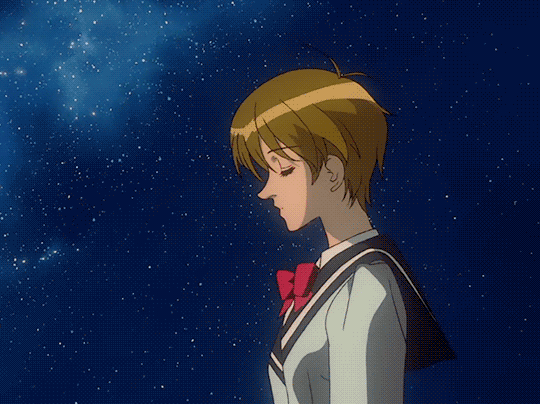
And then there are some animes like Escaflowne (an anime that was already dubbed and licensed and released in the late 90s) only for the whole thing to be redubbed by FUNimation decades later. Reasons? They re-licensed it? There was over 8 minutes of new footage found that was never dubbed? They found it necessary to do that? Take your pick!
Now most of what I’m talking about is mostly America problems. Does Japan redub classic anime? To my knowledge, no. But if they remake, reboot, or give a sequel, the cast might change. In recent reboots such as Fruits Basket, Berserk, Sailor Moon, and Genshiken, the entire cast will change to either appease the original creator’s wishes or start over with a clean slate. And if a series makes a return after several decades, of course they’re going to change voices, are you insane?
Why did I find the need to spew a bunch of useless information today? I felt inspired after Netflix decided to grace us with IT’S presence.
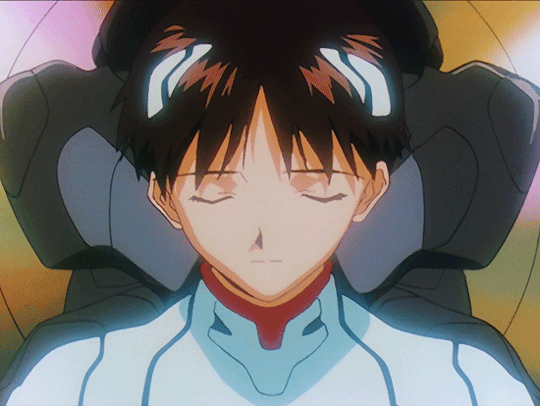
Neon Genesis Evangelion.
A classic in the anime community. A gateway anime for many. A massive mindfuck wrapped in a brainfart. A clusterfuck of many proportions.
The television series was licensed and dubbed by ADV back in the 90s. But of course that company went belly-up and so this series has been unreachable in terms of purchasing for over a decade. Even when Japan gives us reboots in the forms of movies for the Evangelion franchise, only those movies would be picked up (by FUNimation). They didn’t even touch the series. Didn’t they realize fans would pay through the nose to get a blu-ray release of this series? The most fans could get were split-up copies on DVD and old VHS tapes. This was a goldmine.
Alas, FUNimation was not the one to save the Neon Genesis Evangelion series.
It was Netflix.
But...all things come at a price when you make a deal with the devil. Netflix found it necessary to redub the entire series (both movies included) without giving word or even consideration to the original cast (that has been doing the voices to these characters for over 20 years). Spike Spenser, Amanda Winn Lee, Tiffany Grant, and Allison Keith wanted to help with this as they all had a lot of input in the original (especially Lee). Now before I cast stones upon this, I do give this dub some credit. They do make an effort to make this sound like an improved version of the 90s dub. And in some aspects I find the new voice to Shinji bearable. And I’m okay with many new casting changes. I mean NGE was okay, but the dub wasn’t the greatest. My only gripe with the change...
Downplaying Shinji x Kaowru.
Netflix, you just undid like a decades worth of change when it comes to homosexuality in anime. You just took us five steps backwards! Kaowru says he LOVED Shinji. “Like”? No, you like a pair of pants. You like that new Bruno Mars song. Kaowru said he LOVED Shinji. Why the fuck didn’t you keep that translation? The 90s dub was kind enough to have Kaowru say that and the 1990s were run by a bunch of prudes! I thought we were past this shit when we put an end to the old Sailor Moon dubs!
Now with this Netflix dub, many characters on Evangelion officially have 2-3 different voice actors. Or in the case of the character Toji, Johnny Young Bosch is the fifth person to voice him. But some platforms can have the anime itself, just not get the right with the english dub probably due to some legal loophole.
Whew, a lot of changes in anime, right folks? It almost feels like these dubbing companies want to erase the past, right? Well to be fair, everyone seems to be doing that. Disney keeps giving us live-action remakes to classic Disney animated films. Classic anime titles are being rebooted. Dubbing companies are taking older animes and redubbing them. I know it feels like they want us to forget these dubs existed. But I know they just want to improve them.
No matter what, everyone will find fault with everything. And in the anime community, it feels like a never-ending flame war. Older animes will get hated on by how crappy it sounds or looks. And nostalgic fans will hate on the new dub because it’s with new people who sound nothing like the original.
YOU CAN (NOT) WIN!
Heh, I made an Eva-build joke.
With these redubs, many names get pronounced the correct way, many translations will be accurate to the Japanese version, and in some cases it’ll sound a lot better. Dubbing companies try to aim at new viewers and to introduce a new generation of anime fans to an old classic. But for people who grew up with animes like Pokemon, Escaflowne, Cardcaptor Sakura, Sailor Moon, and many others, we grew accustomed to the dub. And when hearing it changed, it’s kind of a kick in the ears hearing anything penetrated or different from all the years you spent watching these animes.
Everyone has their own opinion of what they like and don’t like to hear. I like to give things the benefit of the doubt for the most part. Especially when I watch an older anime for the first time that has several dubs. When I began watching Rurouni Kenshin about 7 years back, I was warned that there were three English dubs to that. And I heard all three. I made my choice of which one I prefer, which one was okay, and which one needs to be set on fire. In case you don’t know, the original TV series had the best, the OVA series was okay, and the redub Sony did needs to be set on fire.
And that would be my advice to new anime watchers. Give both dubs a chance and make your decision on which one you like best.
Sadly, these changes will continue to happen whether for the better or the worst. While there are some changes that upset me, some I’m okay with if not pleased about it. But with the recent upset over fans hating on Evangelion’s new dub and change, do you think the fans will get a revolution and their old dub/old translations back? Let me put it to you this way. If Pokemon told us to sit and spin after many of us outraged over the cast change, what chance do Evangelion fans have against Netflix? But you never know, stranger things have happened. Maybe a miracle will occur and the old dub will get a blu-ray release.
In the meantime, I’ll have to re-write my thoughts on Evangelion with the ADV dub, FUNimation dub, and Netflix dub. TOO MANY DUBS!
This has been another Medea ramble. I’ll go back to doing whatever it is I normally do around here.
#pokemon#escaflowne#neon genesis evangelion#evangelion#sailor moon#Shakugan no Shana#Full Metal Alchemist#excel saga
7 notes
·
View notes
Note
I am kind of a new follower and when I open your blog I see a lot of random NGE pictures and GIFs so I was wondering why you use them a lot do you find Evangelion particularly relatable (sorry if that's a weird question)
It’s not weird at all! (Also even if it was there are so many far worse types of weird than that, and I mean on my hellblog alone. 😅) Anyway, I’m going to give you the short and relatively incomplete answer.
Hoo boy. Evangelion and me go way back. It was the first anime I got really obsessed with; I think I was 14 when I first saw it. I keep going back to it every few years, expecting to not like it anymore, but nope! Still my favorite anime. I’ve no delusion that it’s perfect and the fandom can be really messed up, but it’s still my #1. Rebuild is okay I guess, but the only one that did anything for me was 3.33 because it felt like the original series.
I love the animation. Aside from having that old-school 90s anime look, some of the Angels’ (giant monsters are never just called giant monsters, yo) designs are incredible (and admittedly some are instead Ramiel). I absolutely love how the Eva units have this distended, not quite human look … when I was younger I thought they looked like a women’s Olympic gymnast team that crashed in the snowy mountains and had to resort to eating lost hikers to survive (I was a twisted child).
I love the tone of it. I love how pragmatic it goes (why yes, the ace pilot who trained for nearly a decade would attempt suicide if she was showed up by some guy who just started a few months ago). More than that, I love how the show manages to set this tone of incredible bleakness but also optimism (and how End of Eva basically says, “yeah, fuck the optimism, tear it all down, it all comes tumbling down” etc. etc. while still ending with faint hope). I love how it actually feels tense and uncertain even without killing off very many characters at all (outside of the movie, I mean).
I love the fight scenes. Thet get progressively more brutal until the movie has one of the most grisly deaths in anime. I’m not a gore hound at all, but I miss when protagonists could get the shit kicked out of them and weren’t guaranteed an easy win. Also the stuff feels downright visceral/savage; these are eldritch beings fighting to the death. Love it.
One thing in particular I love is it’s one of the only shows I can think of that portrays depression so relatably. For one thing, there are at least 7 different characters that have depression, and they each deal with it differently! Also I can relate to some of the stuff each of them does. I’d be lying if I didn’t say it’s great that the series has reached this mythological scale, to the point that interpretation takes this “sure, why not” tone.
I love that it feels enjoyably bad in places (and not just Ramiel). I still get a kick out of all the stuff they do to avoid animating lip flaps (which apparently is so very expensive) … though admittedly that made the dub incredibly strong since lip flaps aren’t nearly as big an obstacle.
There’s a lot it does that I hate. There’s so much fucking fanservice that sometimes I think I know a fictitious 13yo girl’s torso better than I know my mom’s face … though I do love that the show has this “what am I DOING???” moment about halfway through and then goes out of its way to make any nudity fandisservice. I hate how the series indirectly pushes the fandom to fight over which 14yo girl is more fuckable (and I hate that so much of the fandom bought into it … I can’t blame people for not believing that I like the chara. in my header for her personality and how she deals with the trauma she endures). There’s more as well (and a lot more I love), but overall I love it.
. . . huh. I didn't even really comment on the characters. Well, I don't need to double this post's length . . . yet.
6 notes
·
View notes
Text
So far I’ve managed to stay pretty far away from Neon Genesis Evangelion on this blog. I’ve mentioned it in passing but I’ve yet to dedicate a single post to any of its many themes, characters or legacies. Love it or hate it, you cannot deny that the series has had an important impact on the anime industry and its perception internationally. As far as ambassadors go, you can do worse.
The fact is that even though I remember it astonishingly well, I haven’t watched NGE in over a decade. I don’t think I’m quite up to reviewing it without a refresher. This is a weird way to start a post. Telling you I’m inept to write it. Actually I start a lot of my posts this way…. Readers are beginning to make fun of me. You guys are patient! Oh Also SPOILERS for a decades old super popular show!
It’s all good folks. This isn’t really a post about NGE. I actually wanted to have a little chat about the inherent narrative problem of clones. To this end I’m going to choose one of anime’s best known representations, Rei Ayanami.
Do you like Rei? I do. Stoic characters have a soft spot in my heart. Besides, in a series like Neon Genesis Evangelion, where everyone is more or less a walking talking nervous breakdown, a calm and quiet character is not only a breath of fresh air, but a necessity. I remember when I first watched the series (so young and fresh), I kept thinking that Shinji should just go for Rei instead. Or better yet, the show should push the other characters to the background and just concentrate on Rei’s story. Considering the reveals later on, solution 2 quickly became my favorite.
or we can petition to get this show made! by Hayama Yuujirou
Unfortunately, neither was ever a real option. Because Rei was never a real person so she can’t be an actual character. That’s the clone dilemma (that was going to be my post title but spoilers!). In order for imaginary conflicts to mean anything, and the audience to get invested in them, there need to be some stakes. Consequences that stick. Or else, why bother. But in most stories, clones are somewhat impervious to consequences. The only reason to make them a clone in the first place is to be able to play with the idea of copies and dispensability.
Clones don’t matter. Regardless of how lovingly the narrative develops them, in the end they are an easily replaceable commodity. If one breaks, heck even if one is too sad or is going through a rough puberty or something, you can just throw it out and pop in a fresh new one into your plot. Sure your audience may get a bit bummed out but they’ll get over it. Clones aren’t special, they’re literally identical to someone else. And that’s why, they can’t be your main character. The audience will never seen themselves in them. No one *wants* to be the copy.
I wanted to be Rei (Chenbo)
From a narrative standpoint, clones bring up a lot of similar problems as time travel. Actions and consequences get trivialized due to lack of permanence. In order for viewers to get really invested in the story, without feeling cheated, you need to get creative with your outcomes and structure. Or you need to use the device sparingly. You need to really create an amazing character, or give up and acknowledge it’s just a prop.
As such, that’s what clones often become. Plot devices rather than characters. A certain Magical Index can afford to violently kill off armies of Misakas while remaining generally bloodless otherwise because it doesn’t count as long as there is at least one more Misaka left standing. It’s a cheat you see. The show is now gritty but doesn’t have to worry about alienating more sensitive viewers.
You can write stories that are cruel to your clone characters while still passing off as generally harmless and even happy in tone.
it’s telling how often Rei is illustrated as wounded (by usually ecchi DanteWontDie)
As for Rei herself. I am not so deluded as to call Neon Genesis Evangelion a happy show by any stretch of the word. However, if you take the original series ending as canon (which I do), it is surprisingly hopeful. Those characters went through figurative hell in order to learn something from the journey and came out the other side better and stronger for it. Shinji started coming to grips with profound insecurity and guilt caused by his abusively neglectful father. Asuka finally has a chance to start putting behind her the trauma of a devastating childhood and mentally unstable mother. (Parents…am I right?). Humanity as a whole is given a second chance….
And poor little not a real girl Rei gets to watch. Rei endured the hardships of piloting an Eva longer than anyone. She didn’t have the benefit of a parental figure to fall back on like Misato (flawed but comforting). Rei was expected to shoulder the burden alone without so much as a helpless friend to confide in. It’s a lot to ask. You would think she would be particularly rewarded.
https://www.zerochan.net/Dcchris
https://www.zerochan.net/wlop
https://www.zerochan.net/Bati15
https://www.zerochan.net/Flyco_
Of all the unfortunate souls trapped in the end of world nightmare that is Neon Genesis Evangelion, no one suffered greater psychological or physical trauma than Rei. She’s the only one of the main cast that actually died. And what does she have to show for it? An extremely creepy and uncomfortable relationship with her only child and estranged husband? That’s about it. Rei doesn’t even get the benefit of personal growth.
And of all the very many things fans of the franchise got extremely mad about, her mistreatment wasn’t even a consideration. Because clones don’t matter…
I disagree. It’s time we started respecting imaginary lives even if they are visually similar. I mean all the sailor scouts are clearly clones wearing different wigs. We care about them. Clones do matter and so did Rei.
The Rei Ayanami Dilema So far I've managed to stay pretty far away from Neon Genesis Evangelion on this blog. I've mentioned it in passing but I've yet to dedicate a single post to any of its many themes, characters or legacies.
0 notes